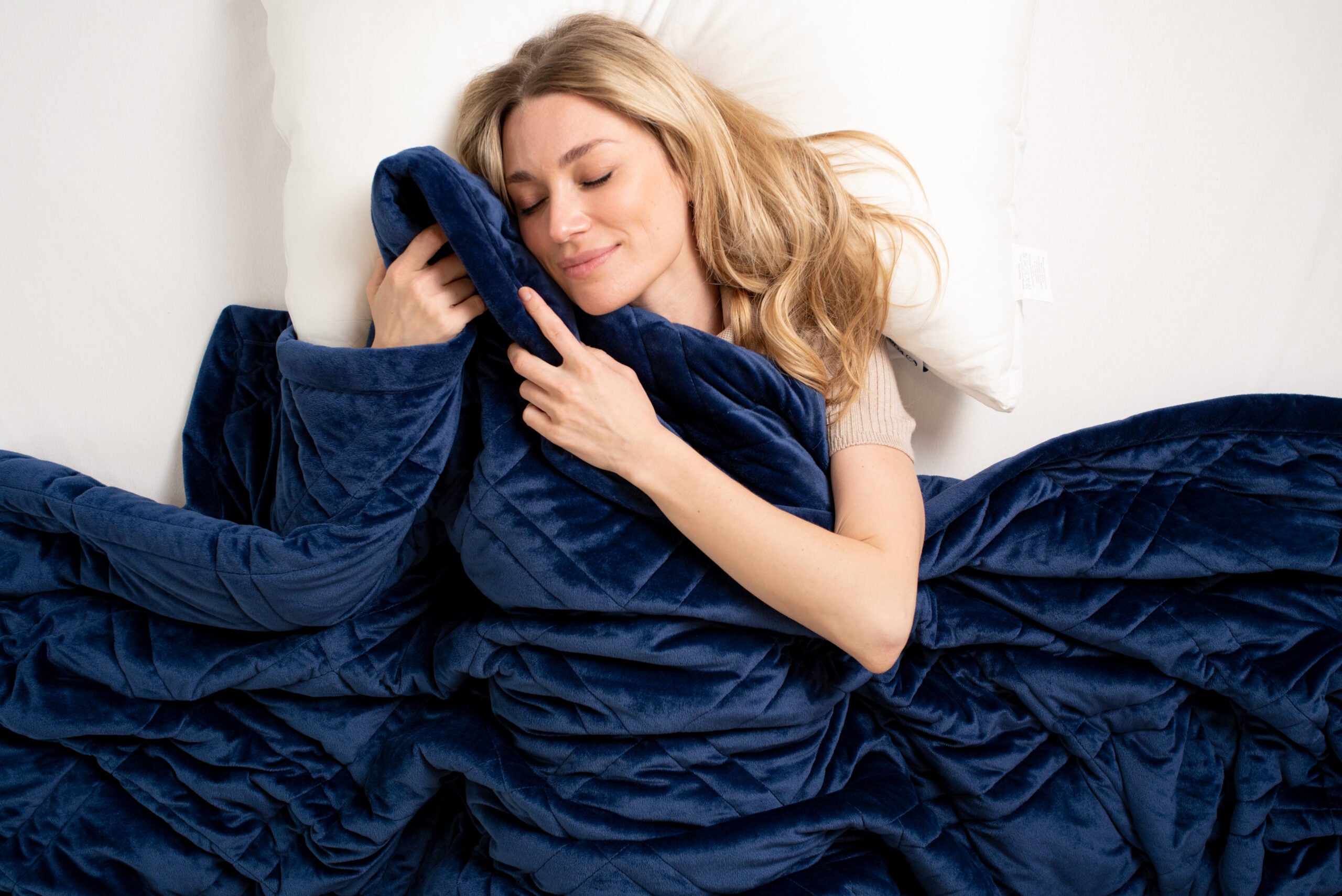Sleep and dreams is without a doubt one of the most fascinating mysteries of life. The meaning and purpose behind why we sleep and dream has been a largely debated topic for centuries, and is still being studied today.
Although we may not know the exact reason why we sleep or dream just yet, scientists and sleep researchers have made a significant amount of progress in making sense of what’s going on while we’re far away in the land of nod.
Is sleep and dreams always on your mind? If so, grab all of your kudd.ly cosies and settle in, as we’ll be exploring the topic deeper and uncovering all the secrets of sleep below!
What happens when we sleep?
Several biological processes occur while we’re sleeping in order to help us recharge.
During sleep, our bodies release proteins and hormones to help repair cells and control our use of energy, while our brain works hard in the background to store new information and remove toxic waste.
Meanwhile, our nerve cells communicate and reorganise to support the health of our brain. All of these processes happen during different stages of sleep, known as Stage 1 NREM, Stage 2 NREM, Stage 3 NREM, and Stage 4 REM.
What are the stages of sleep?
Once you’re asleep, your body cycles between three non rapid eye movement phases of sleep followed by one rapid eye movement (REM) stage. In one night, you’ll go through these sleep cycles around four to six times.
Stage 1 NREM: This is the shortest stage out of the four and usually lasts around a few minutes. As this is the transitional time period between wakefulness and sleep, you can easily be awoken at this stage and you usually won’t be able to remember that you were asleep.
Stage 2 NREM: This stage is deeper compared to stage 1. You can usually still be awoken at this point in sleep, but only by louder noises or stronger physical touch. We spend around 45-55% each night in this stage.
Stage 3 NREM: Known as the deep sleep stage, Stage 3 is when we get the highest quality of rest. Our heart rate, breathing and brain waves are slowest during this stage, and our muscles are relaxed. This is the stage that gives us that refreshed feeling when we wake up, so you’ll likely feel disoriented if someone were to wake you up at this stage. Around 13-22% of our sleep is deep sleep.
Stage 4 REM: REM is when all the sleep magic happens: otherwise known as dreams! At this stage, our muscles lack tone and our eyes move quickly beneath our eyelids. Interestingly, our brain activity is similar here to when we are awake, which is why we are able to dream.
Why do we dream?
Have you ever woken up from a particularly weird dream and thought: what just happened? There’s a lot going on while we’re dreaming, so it’s no wonder why our brains come up with the most bizarre storylines and ideas!
While we’re in REM sleep, neurons are buzzing around inside our brains which pump activity straight into the brain’s visual cortex. It’s at this point we experience vivid visions known as dreams, even while our eyes are fully closed. This activity in our visual cortex explains why our dreams often feel so real and almost cinematic at times.
Interestingly, dreams are sometimes not only visual but also include all of the senses, while some people only dream in black and white. People who are blind are able to dream, but they are more related to the senses including sound, taste and smell.
There’s no conclusive answer yet as to why we dream, but sleep experts have speculated the following reasons:
- Dreaming could be a way for our brain to process emotions and collect and analyse memories so that we can be prepared for future situations.
- Or, they could be a way for our brain to clear out unnecessary information.
- Some experts believe that dreaming is just a result of brain activity while we sleep, and has no wider purpose.
What other dream theories are there?

On the other hand, psychologists like Sigmund Freud proposed a theory in 1900 that our dreams represent the unconscious desires of our minds, labelling them as “disguised fulfillments of repressed wishes.”
Freud’s psychological theories about dreams have since been debunked by modern sleep scientists, however many people still believe that our dreams have deeper meanings, while others have gone as far to say that they can predict our future.
Some believe that commonly experienced dreams such as failing an exam or job interview can be your brain’s way of representing the stress that you’re currently under. Another frequently reported dream is falling, which is thought to represent that you may be losing control over certain aspects in your life.
Some people are able to find comfort in dreams with themes such as finding a new door in your house, as it’s thought to represent that a new adventure or new possibilities are on the horizon.
Of course, there is no way of proving that any of these meanings are necessarily true, and so you shouldn’t worry if you have a particularly unsettling dream. Regardless of how bizarre they are, your dreams can be interpreted in any way you’d like.
Get the best night’s sleep with kudd.ly

Make your bedroom a peaceful place with our cosy selection of attire and home comforts at kudd.ly. From stress-relieving weighted blankets and aromatherapy diffusers to sumptuously soft bedding, we’ve got everything you need to drift off easily to dreamland.
Want to know how to promote deeper sleep? We recommend reading our blog post here which is filled with further helpful information and advice.


